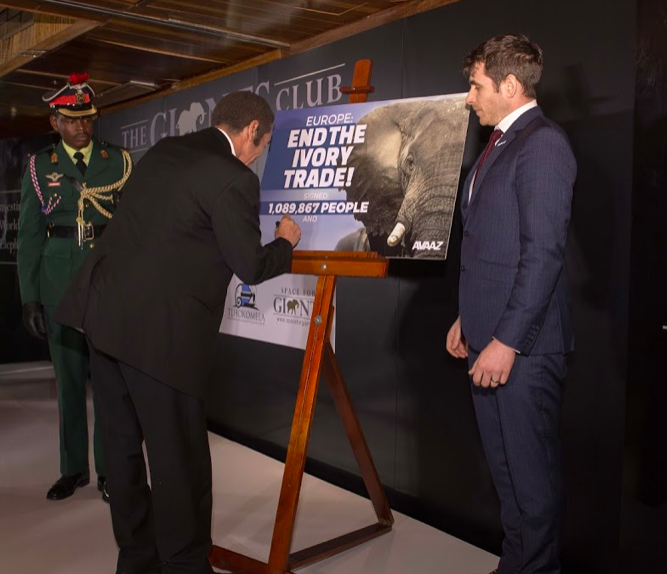Donald Trump 'encouraging poachers' by allowing hunters to bring tusks back to US

The US decision to allow hunters to import trophies from elephants they kill in Africa means Donald Trump's administration is “encouraging poaching”, Botswana's president Ian Khama said at the Giants Club Summit.
The move to allow on a case by case basis the import of tusks, skins and other parts of animals killed in Botswana, Namibia, South Africa, Tanzania, Zimbabwe, and Zambia had already drawn global criticism.
But the comments from Ian Khama were particularly powerful. Botswana is home to more than a third of the elephants left in Africa and unlike many of its southern African neighbours it has banned trophy hunting.
“I want to take this chance to condemn in the strongest possible terms the shocking decision taken by the Trump administration…[to] consider issuing permits to import certain elephant trophies from six African countries,” President Khama said at the three-day Summit, which continues on Saturday.
“I think that this administration is undermining our efforts and also encouraging poaching in the process because they are well aware of our laws that prohibit trophy hunting in Botswana.”
President Khama's remarks on the Trump Administration's decision to allow ivory to be imported came just before he added his name to a global petition with close to 1.1 million signatures calling for the European Union to close its ivory trade.
While China, Hong Kong and other key players have already implemented or announced ivory bans, the EU is yet to follow suit.
The petition, organised by citizens' movement Avaaz, calls on EU Environment Commissioner Karmenu Vella and EU heads of government to close Europe's domestic trade in ivory, end all ivory exports, and support efforts to ban the global ivory trade.
President Khama, President Yoweri Museveni of Uganda and President Ali Bongo Ondimba of Gabon – all members of the Giants Club – signed the petition. Keriako Tobiko, Kenya's environment minister signed. Together those four countries alone are home to more than half Africa's elephants. Representatives of the African Elephant Coalition also signed – bringing the total number of countries on board to 32.
“European officials told us they couldn't ban ivory because African leaders didn't want them to,” said Bert Wander, campaigns director at Avaaz. “Now we're going back to them with these Presidents' signatures and asking them if they have any other excuses. The truth is there are none - the rest of the world is turning its back on the ivory trade. Why not Europe?”

The EU is the world's biggest exporter of legal ivory and presides over significant trade. It exported 1,258 tusks in 2014 and 2015 alone, more than the previous eight years combined.
“We’ve long argued that all ivory markets should be closed because any ambiguity over can you buy it or can't you buy it drives confusion and criminal networks make billions of dollars a year exploiting that confusion,” said Max Graham, CEO of Space for Giants, which is co-hosting the Summit with Botswana's Tlhokomela Trust. “It's simple: the EU must follow China and say no ivory is for sale, full stop.”
The Giants Club is an initiative of Space for Giants. It aims to effectively protect half of Africa’s elephants and their landscapes by 2020 by uniting the political will, technical know-how, and financial muscle to achieve that goal.
The Giants Club's members include international philanthropists and financiers, and key influencers including celebrities. Conservation scientists are technical advisors. The Summit gathers members to hear innovative ideas how to protect elephants and their landscapes before negotiating finance and securing political will to expand the reach of those ideas.

 Yahoo News
Yahoo News 
